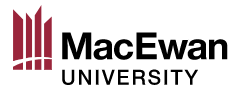Learn how to effectively prepare budgets, perform cost-volume-profit analysis, apply incremental analysis decision-making to your operations, and gain an understanding of the role of a financial controller in small-to-medium sized businesses.

Whether you're an entrepreneur, consultant, employee or student, the Bookkeeping and Accounting Technology certificate will help you develop an entrepreneurial mindset and acquire foundational financial skills that you can use immediately.
Gain a thorough understanding of fundamental full-cycle bookkeeping theories and practices with a focus on recording, protecting and creating value for your business or organization.
Learn how to effectively prepare budgets, perform cost-volume-profit analysis, apply incremental analysis decision-making to your operations, and gain an understanding of the role of a financial controller in small-to-medium sized businesses.
These courses will help you:
Read and understand financial statement and budgets in order to confidently make business decisions
Forecast and prepare for financial highs and lows based on data from previous fiscals
Gain knowledge in the use of popular accounting software that is in high demand in the accounting industry
Track inventory levels, promotions, and sales to understand financial positioning
Organize and track outstanding and incoming invoices
Prepare future budgets based on financial predictions influenced by current position
Increase profitability and identify waste
MacEwan University provides a transformative education in a collaborative and supportive learning environment. Creativity thrives here—through research and innovation that engage students, faculty and the community.
© 2025 coursetakers.com All Rights Reserved. Terms and Conditions of use | Privacy Policy